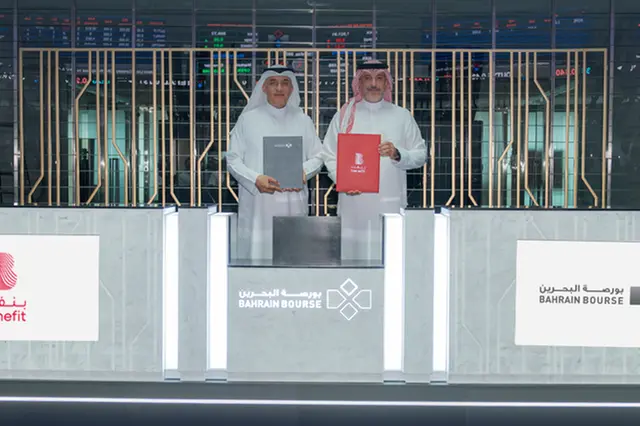Saudi Vice Minister of Finance Abdulmuhsen Alkhalaf revealed that the number of fintech companies in the kingdom reached 224 by the end of the second quarter of this year, surpassing the program’s target for the same quarter, which was 168 companies.
He indicated that the goal is to increase this number to 525 companies by 2030, noting that these results are a product of the efforts made by the relevant authorities.
This statement came during his participation in a panel discussion titled “Leadership in the Age of Technology and Innovation” as part of this year’s Financial Academy Forum in its third edition.
He pointed out that technological transformations have impacted financial transactions through artificial intelligence to support the economy, whether by utilising big data, blockchain, or business intelligence programs.
These transformations have significantly influenced financial planning and performance monitoring, enhancing predictive capabilities regarding both positive and negative developments.
Given the vast amount of available data, information, and statistics, decision-making is supported by proactively seizing opportunities or strengthening risk mitigation.
Alkhalaf emphasised the effects of modern technologies in the financial sector, particularly in enhancing predictive capabilities based on the availability of information and data that assist in making appropriate decisions.
He explained that technology has activated many pathways in the financial sector, making the required information accessible and available, thereby enhancing credibility, transparency, and governance programs in the sector.
He said: “The world today is witnessing remarkable and rapid technological development, where modern technology has created an unprecedented revolution across all fields, extending its impact to the government sector.
“Technology has fundamentally changed how the sector is managed, including internal transactions and the services provided to beneficiaries, whether individuals, private institutions, or other government entities, thanks to massive investments in digital infrastructure and the level of empowerment in the digital transformation that the Kingdom is experiencing.”
Alkhalaf addressed the role of technology in the government sector in the Kingdom, specifically within the Ministry of Finance, saying: “Allow me to refer back to the launch of Saudi Vision 2030. Since that time, the ministry has worked on many aspects, employing technology in various sectors and harnessing it to develop the financial sector.
“Over two years ago, the executive plan for the fintech strategy was launched, which is one of the pillars of the Financial Sector Development Program aimed at facilitating business operations and attracting investments.”
He added, “The Ministry of Finance recognised that the technological ecosystem and its initiatives were distributed among separate and unconnected technical units; there was a unit for revenues, another for budgets, and a third for accounts, each with three separate systems.
“From here, we began to feel challenges at that time that reduced the efficiency of financial planning processes. Therefore, we started working from the beginning of 2017, when the ministry decided to consolidate all initiatives into a single technological system, which has evolved over the years and is now represented in the National Centre for Government Resource Systems.
“The ministry has been able to create several systems—such as the I’timad platform, the payment system, and the transaction system—which have helped facilitate business and improve decision-making processes.”
He added: “We are still striving to benefit from these technologies. Currently, we are working in the ministry to build an interactive dashboard that includes all data related to fiscal policies and macroeconomic indicators, which will help in formulating accurate recommendations to improve the process of drawing up fiscal policies.”
He discussed the key initiatives undertaken by the Ministry of Finance to achieve digital transformation, stating: “The ministry, in partnership with the National Centre for Government Resource Systems, adopted a business model based on digital technologies to innovate products and services and provide new channels that enhance the value of its products and their impact on public finance.
“Perhaps the closest example that comes to mind as a national digital success story, in which the ministry and the centre played a significant role, is the I’timad platform.
“Previously, contract, tender, and procurement processes for government entities were conducted manually, leading over time to poor data management, delays in disbursing payments to the private sector, and issues in government projects.”
He added: “From here, the idea of the I’timad platform crystallised in the second quarter of 2017 during a meeting of ministry leaders regarding the automation of payment orders. The ministry chose a simple methodology to develop the platform flexibly; that is, to present a small product and then develop it, starting with one service and then expanding the services offered.
“Today, the platform provides its beneficiaries from the public and private sectors, as well as government employees, with numerous services related to public finance, where the procurement cycle to payment has become regulated and automated.
“We now know the current status regarding the budget, expenditures, and existing commitments, which helps enhance governance, transparency, reliability, and spending efficiency. The platform has also expedited the process of settling dues for the private sector and made financial data available that enables us and government entities to compare, monitor, and improve financial planning.
“Previously, the payment order cycle exceeded 100 days, and the ministry processed between 2,000 and 3,000 payment orders daily. With the I’timad platform, the payment order cycle has decreased to 14 days, and the ministry now processes approximately 6,000 to 7,000 payment orders daily, committing to settle payments within 45 days of receiving the payment order, which has contributed to maintaining the efficiency of the private sector and sustaining its growth.
“Additionally, the deposit of dues into beneficiaries’ accounts after execution used to take three working days, but after launching the TRAX payment system and implementing electronic signatures, deposits are processed on the same day of transfer execution.”
He addressed the challenges facing institutions in general and financial institutions in particular, including global competition in attracting technical expertise and talent, enabling challenges such as infrastructure and regulations, cybersecurity challenges, and the challenge of resistance to change.
Alkhalaf discussed emerging technologies, stating that they can have a positive social and economic impact on many aspects, such as improving the level of financial inclusion for community members, as well as enhancing the level of transparency among governments, which improves the quality of financial data and financial planning while helping combat money laundering and controlling the financing of illegal activities.
He noted that increasing the accuracy of estimating and measuring the impact of public policies is a significant concern for decision-makers, and emerging technologies can be used to simulate the expected outcomes of policies by collecting, processing, and analysing big data, providing feedback and recommendations that assist in making balanced economic decisions.





